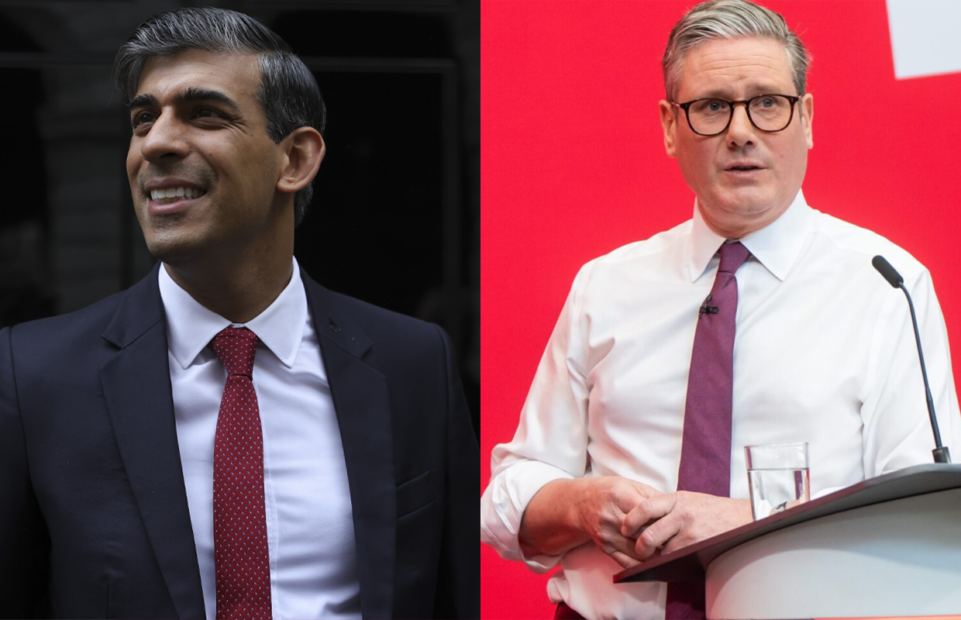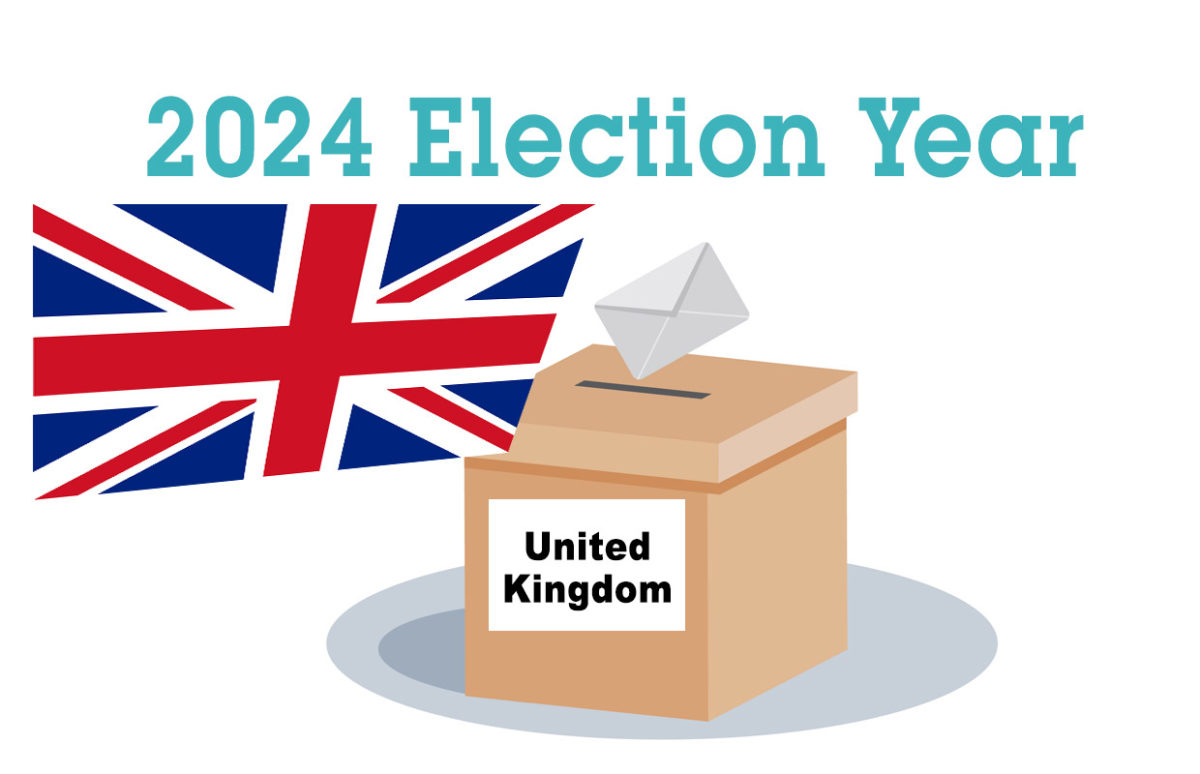On 4 July, British citizens will vote in a general election. It is widely expected that the Conservative Party, which has been in power for 14 years, will be defeated.
British voters knew they would be called to the polls for a general election at some point in 2024 but Prime Minister Rishi Sunak surprised many, including his own MPs, by announcing on 23 May that the election would be on 4 July. He is now leading the campaign for the Conservative Party while polls all predict that Labour, led by Sir Keir Starmer, will win a majority of the country’s 650 constituencies. The principal other parties running are the Liberal Democrats (centrist), the Green Party, and Reform UK (the former Brexit Party led by Nigel Farage). Add to those in Scotland the Scottish National Party, in Wales Plaid Cymru and in Northern Ireland the Alliance Party, the SDLP, the UUP, the DUP and Sinn Féin.
First Past the Post
It is a one-round, first-past-the-post election, which means that whichever candidate in each constituency receives the most votes wins the seat. The party with the most seats is invited to form a government and it can choose a Prime Minister, generally its own leader. The process is rapid: the new MPs join their first session in Parliament on 9 July, and the State Opening of Parliament by the King will be on 17 July.
MPs are elected for five years but the Government can choose, or be forced to, call an election before the five-year limit.
This one-minute video from the BBC’s children’s news programme Newsround is an excellent summary. Check our Webpicks for more teaching materials.
From One Prime Minister…

A former investment banker, Rishi Sunak, was elected to Parliament in 2015. He was Chancellor of the Exchequer (finance minister) from 2020 and has been Prime Minister since 2022. He is the fifth Prime Minister in the Conservatives’ 14-year tenure and the third since the last election in 2019. He follows David Cameron, Theresa May, Boris Johnson and Liz Truss. Sunak, 44, the first British-Asian British PM, is married to a billionaire businesswoman.
The Conservatives have been behind in opinion polls since 2021, and their 70-seat majority was eroded by lost by-elections and Conservative MPs defecting to Labour or Reform.
To Another?
Former human-rights lawyer Keir Starmer,61, has also been an MP since 2015 and became leader of the Labour Party in 2020, replacing Jeremy Corbyn. He is seen as a more palatable, more centrist alternative to the left-wing Corbyn but has neither the charisma, nor the strongly-held beliefs of his predecessor. Despite being Sir Keir (he was knighted for his work leading the Crown Prosecution Service), he is the son of a factory worker and a nurse, and was named after Keir Hardie, the founder of the Labour Party.
The Labour manifesto promises to invest in the National Health Service and housing, reduce illegal immigration and recruit teachers to state-schools by taxing private schools.
Copyright(s) :
UK Parliament
> Teaching About the UK Electoral System
Tag(s) : "citizenship" "elections" "EMC" "parcours du citoyen" "politics" "Prime Minister" "Rishi Sunak" "UK" "UK parliament" "UK politics"





